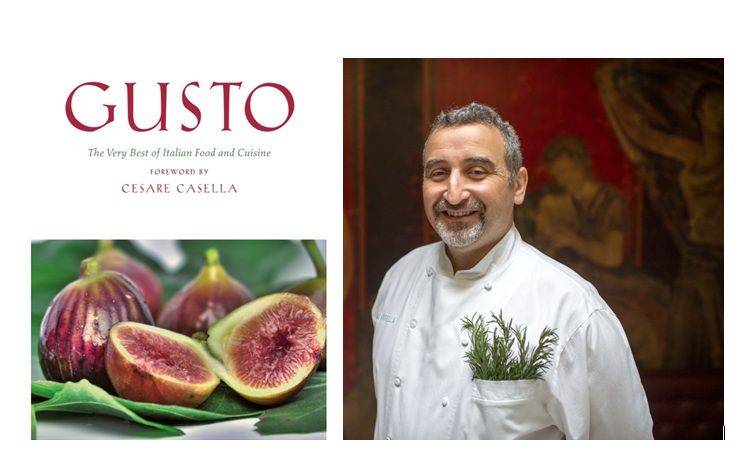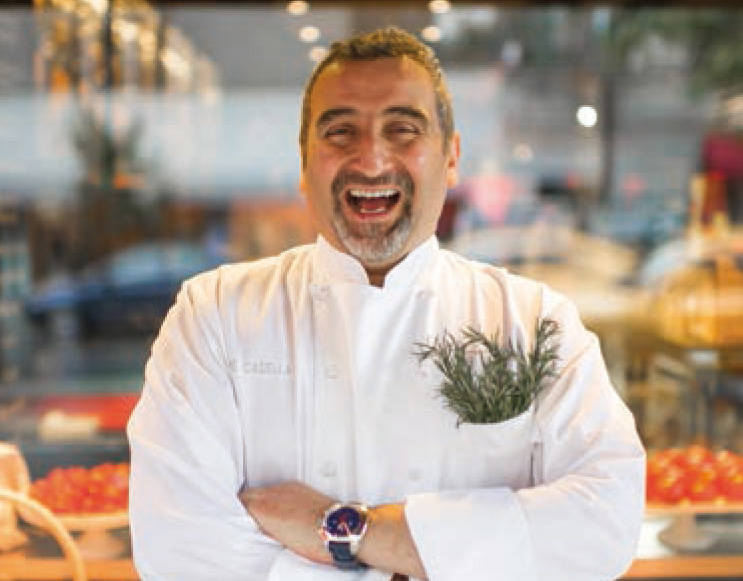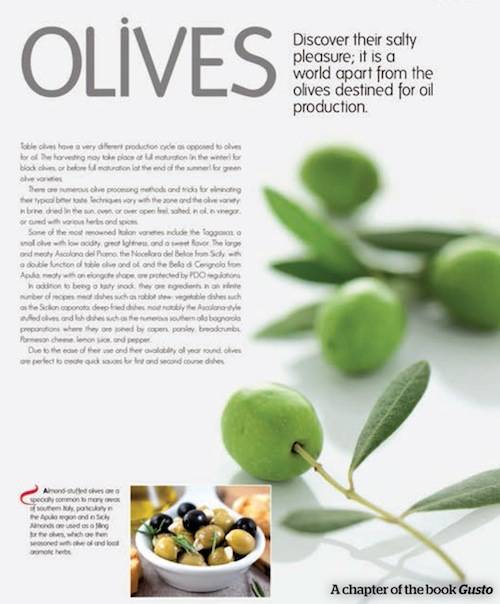Gusto. An Encyclopedia of Italian Cuisine
“What are the ingredients I cannot live without? Really, my answer is good quality, fresh ingredients. Maybe it seems strange to say this, but to me it is so important that the product tastes fresh — and real. Many times the product doesn’t actually taste like what it’s supposed to.
If it doesn’t taste right, I prefer not to use it. I think that Gusto can help you really figure out
how to select good ingredients. And the two ingredients that I absolutely cannot live without are sale (salt) and olio (olive oil). These are the two most important ones for me.”
Chef and restaurateur Cesare Casella speaks to i-Italy about Gusto: The Very Best of Italian Food and Cuisine, a beautiful book for countertops and coffee tables everywhere, a rare gem first published in Italy in 2011 that has now been translated into English with a foreword by the chef in which he sums up the philosophy of the book itself, extolling the value of fresh ingredients and recounting the times he selected the best produce and fresh seafood in Tuscan markets.
Chef Casella has been sharing his passion for authentic Italian food with Americans for the past twenty years. He is the owner and executive chef of Salumeria Rosi Parmacotto and Il Ristorante Rosi, and the Dean of Italian Studies at the International Culinary Center in New York City. He is also a frequent featured visiting guest at the James Beard House and De Gustibus. Chef Casella has written several books, including The Fundamentals of Italian Cuisine (2012), True Tuscan (2005) and Italian Cooking for Dummies (2002). He was ecstatic when he was asked to write a foreword to his new book, which was edited by Armando Minuz and published by Abbeville Publishing Group.
Ingredients are essential
“Why did I want to be involved with Gusto? Really I couldn’t resist. When I first saw a copy of the Italian version I was so amazed by the beauty of the book. Then when they asked me if I would write the foreword to the U.S. Edition of course I said yes. For me the ingredients are so important. They are what make the dish. In Italian cooking, if the ingredients aren’t great, you can’t cook good food.
Pictures, recipes, and tips
Gusto is the first encyclopedia of Italian cuisine and features 4,000 stunning photographs and more than 140 recipes. The book starts by describing the cuisines of Italy’s 20 regions, then goes on to cover the numerous categories of food, starting with pasta, in all its splendid shapes and sizes. Then there are a dozen kinds of prosciutto, various cuts of meat, all sorts of fish and crustaceans, and much more, including vegetables, fruit (more than 10 varieties of cherries are introduced in the book), coffee, ice cream and wine. Each page has plenty of photographs, not just of the food but of preparation tips as well, which raises the learning curve and whets the appetite.
It is safe to say that Gusto is the first visual guide to Italian cuisine and the unique, ingredient-based organization of this book makes it a great resource for anyone who is interested in slow food, sourcing authentic ingredients, or exploring the country’s beloved cuisine.
Recipes in the book range from favorites like gnocchi in tomato sauce and risotto to little known regional dishes like tagliatelle with chestnuts and speck, and saffron maccheroncini. There are also some lesser known ingredients.
“Well, in New York you can find almost everything, but there are a few things that you really can’t find,” says Casella. “I’m thinking about some of the rare types of fish, like rossetti, a small fish that is difficult to find in Italy too. There are also products that you can’t find anywhere in the U.S. because of strict USDA regulations, like culatello.”
There is hope that these ingredients will some day make it to the US. In the meantime, at least we can learn about them in Gusto so that one day, on our travels through Italy, we’ll be able to taste them for ourselves. It’s always good to prepare ahead, right?




































i-Italy
Facebook
Google+
This work may not be reproduced, in whole or in part, without prior written permission.
Questo lavoro non può essere riprodotto, in tutto o in parte, senza permesso scritto.